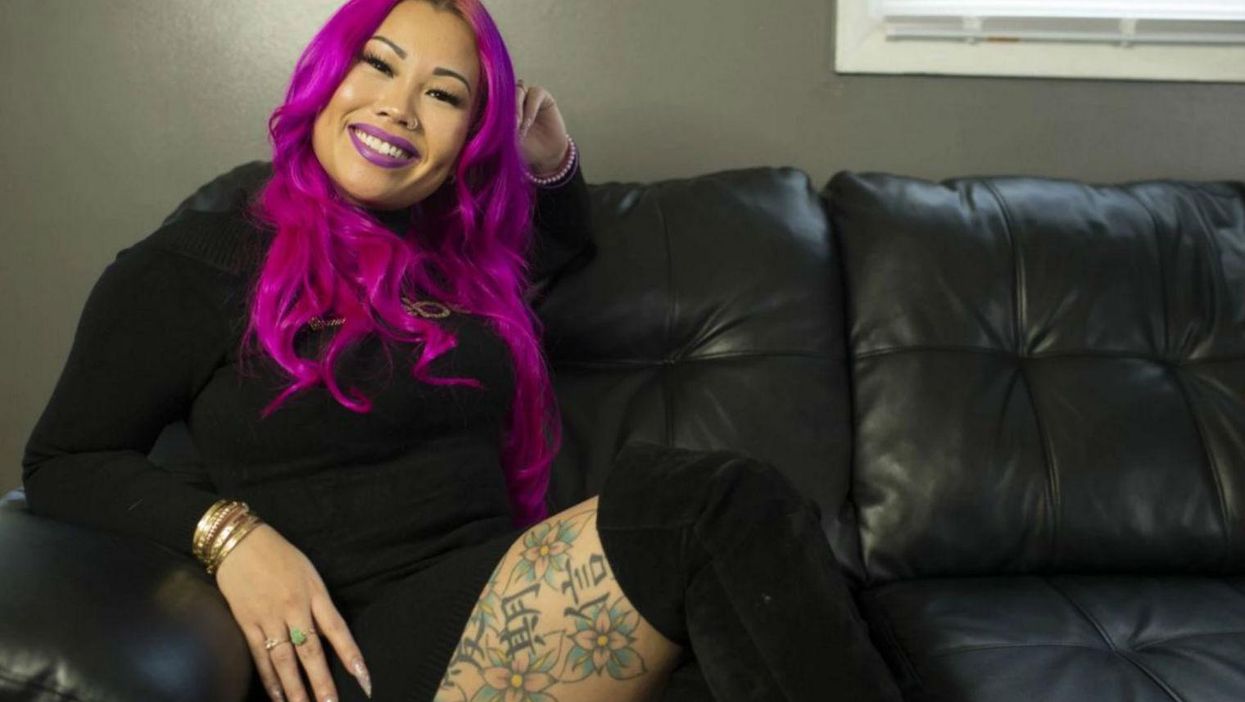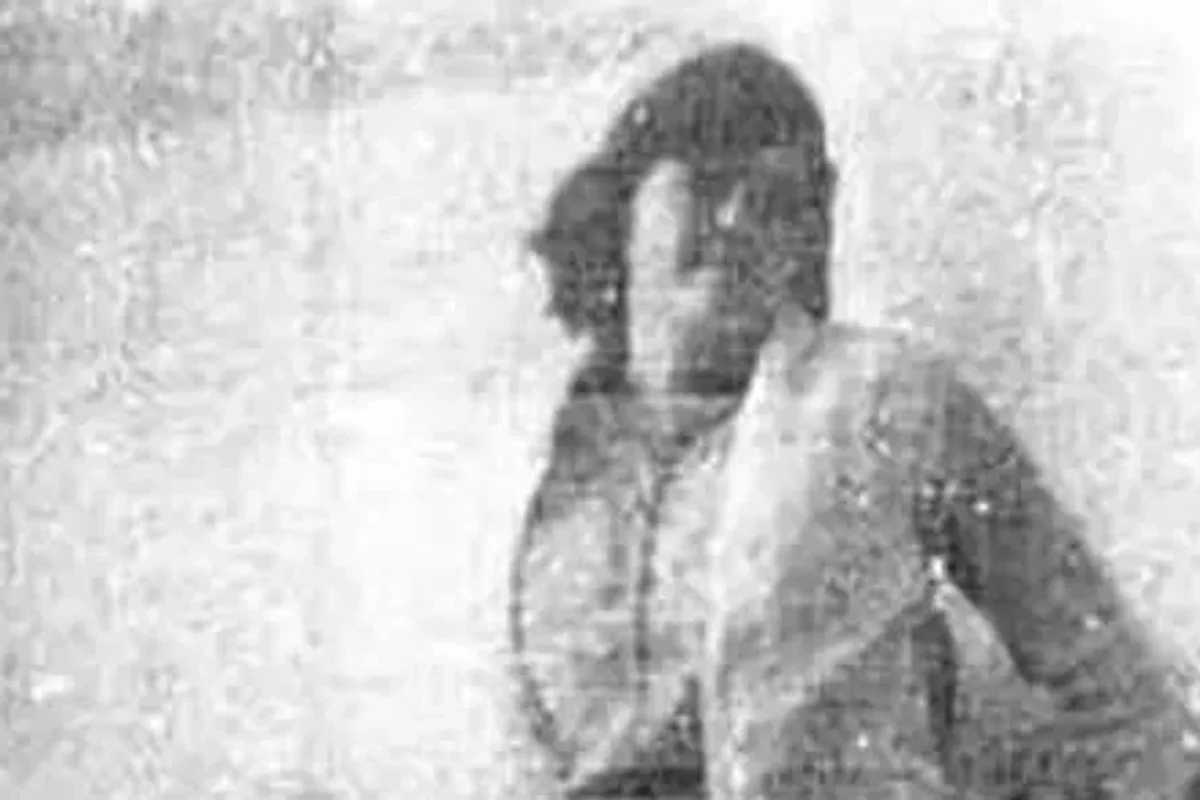News
Terrence McCoy
Jan 17, 2016

Myha Luong, aka 'Lovely Mimi'
The first step to becoming Internet-famous, according to people who know about such things, is recognizing what makes you extraordinary.
One guy earned 1.7 million Instagram followers on the strength of his “man-bun.” Another person pulled in four million YouTube fans after perfecting the histrionics of the “fangirl.” One man soared into stardom because he likes shooting big guns on camera and his 15 million followers like watching it.
Myha Luong’s discovery of what made her remarkable occurred in the most unremarkable of places — a nail salon in a Capitol Heights, Maryland strip mall. Crammed between a Chinese takeout joint and a check-cashing operation, inside Luong’s Lovely Nails, the 25-year-old has transformed herself from an obscure high school dropout into one of the nation’s most famous nail stylists.
How this happened is a familiar tale of fame’s changing nature in a rapidly interconnected world. For decades, celebrities were the product of gatekeepers and management companies, trotted out fully formed, freshly coiffed. But Luong belongs to a raw and growing class of celebrity that has bypassed this process for the democracy of social media, where worth isn’t measured in paychecks or movie roles but in number of clicks and likes.
And few bring in the clicks like Lovely Mimi — Luong’s online alias. In the past year, amid a creative deluge in which she’s posted hundreds of short videos, Luong has collected more than one million social media followers.
In these videos, Luong, who wears fake nails, fake eyelashes and hair dyed like a snow cone, oscillates between the stereotypical accents of urban America. First there’s the Vietnamese nail stylist. Then there’s the African American customer. The valley girl. The angry driver.
It’s funny. It’s crude. It’s offensive. Her fans love it.
“My Asian Sensation!!!” one person wrote to her.
“Why are you so funny?” another person said.
“As a Vietnamese girl in this generation, I NEVER see Vietnamese young ladies like you,” one fan wrote. “I LOVE it."
I’ve been floating around the Internet a lot lately, being known as the most ratchet Asian girl you’re ever going to meet
...said Luong said in one recent video that received 19,000 likes, using a slang term that generally means urban and classless. “I’ll take it!”
Weeks later, Luong sat in her nail salon. Her hair was now bright pink. She’d just finished doing one woman’s nails and another’s eyelashes, and she was catching a quiet moment before another customer, invariably informed of her salon through social media, strolled in. So she pulled out her phone and scrolled through hundreds of fan messages.
“I think it’s crazy, too,” she said, putting down her phone. “I get 1,000 new followers every day. I don’t know how they found me.”
‘Myha bling-bling’
It’s entirely possible — in fact, highly likely — that you’ve never heard of Lovely Mimi. This wouldn’t be surprising. Most Internet stars operate in parallel societies in which they reach millions, but remain unknown in a household sense.
Jenna Marbles, for example, commands a listening base of nearly 16 million YouTube subscribers, but few people older than 30 know who she is. The same goes for teen Lauren Giraldo, who accrued 3.3 million followers because of her satirical Vine videos.
“The digital media landscape will always be biased toward discrete channels, whereas the television landscape is based toward melting-pot values,” said Douglas Rushkoff, a professor of media theory at Queens College in New York
The big blue marble of the television era is giving way to micro-segments. And if you’re popular in one segment, people in others won’t know you.
The broad commonality these celebrities have is that they plugged into an untapped community. “Part of [online success] is being the first one in to whatever the niche is and trying to draw attention to it,” said Brooke Duffy, professor of advertising at Temple University. People, she said, desperately want to relate to celebrities and see themselves reflected in their behaviour.
In that sense, she added, Internet celebrities convey underrepresented identities in popular culture.
“That’s the long critique of mainstream media,” she said. “Its lack of diversity.”
Growing up, Luong never saw anyone who looked or sounded like her when she watched television. She was born in Vietnam, and her family came to the United States as refugees in 1993 when Luong, nine years younger than her closest sibling, was a toddler. The family settled into a Silver Spring, Maryland apartment and enrolled Luong in public school, where she developed a personality that mimicked her surroundings rather than her family.
“She was always wanting to be popular,” older sister Thu-Lan Luong said. She said her younger sister was a gifted violin player but stopped playing at a young age and started focusing on fitting in. She became enamored with Air Jordans, braided her hair into corn rows and started calling herself “Myha bling-bling.” She also started getting into trouble.
Between the ages of 12 and 16, she went into and out of juvenile detention facilities, though she declines to discuss her time there. “Do I have to talk about that?” she asked.
“My problem was rebellion,” Myha Luong said.
My sister told me all of my life I was chasing popularity. That was my problem... I started chasing after popularity.
She said she could have gone back to school when she got out — and tried once — but dropped out her senior year and never earned her GED diploma. She gave birth to her first child at the age of 17 and soon found herself in a nail salon. “I started because I’m Vietnamese and all Vietnamese do nails,” Luong, who’s married and has three children, said with a laugh. “If I was Chinese, I’d be at the carryout.”
It takes a certain fearlessness to joke about such things. But that boldness, Luong said, is what makes her remarkable. It’s what makes her different. It’s what, she thought, could work on the Internet.
“I like to talk about dirty stuff and the stuff that people are afraid to say,” she said.
The world is so self-conscious. There’s no such thing as acting black or acting white or punk rock — there are all types of different races in these groups, and you shouldn’t categorise by colour.
So soon after she opened up Lovely Nails last year, in a gambit to attract customers, she started posting videos to Instagram.
‘Our whole lifestyle changed’
Things didn’t go well at first. Few customers dropped by Lovely Nails, and no matter what she tried, Lovely Mimi couldn’t get past 5,000 followers. “I was trying to get followers for the longest time,” she said. But pictures and videos depicting her family life didn’t attract many followers. Then on April 29, she posted a short video. It showed her in her car, hair dyed neon green, breaking into a Vietnamese accent. It snared more than 1,000 likes — more than anything she’d done.
This is the crucial moment in cultivating a fiefdom of followers, experts say. Budding social-media stars need to recognise what works, then consistently deliver on it. It is “knowing who you are and what you want to talk about and being very specific,” said Julie Kennedy, senior director of talent at Fullscreen, a social media company. “Then have something that’s unique to you.”
And indeed, almost every day afterward, Luong uploaded videos, normally shot by herself while she sat at the wheel of her car. The topics included eating well, dealing drugs, road rage and nail salons — everything delivered in a stream of accents. It provided so much material that in late August, a Houston promoter with 160,000 Facebook followers who calls himself “Arron the Don,” came across Luong, made a compilation video and uploaded it.
“Ever seen a ghetto asian black girl?” Arron the Don wrote in the caption. “If not... meet crazy [expletive] Mimi.”
The video shot to 10.5 million views, spawned 48,000 comments and was shared nearly 240,000 times. And, most importantly, it promoted Luong, bringing in cascades of followers to her Instagram and Facebook accounts. Husband Remy Skinner, who sometimes lurks in the background of her videos, said strangers were soon recognising him in the streets. “Our whole lifestyle changed,” he said.
I can’t even go the Subway shop without someone making a big deal. It feels like I’m the celebrity, and I’m just the husband!
The young family hopes more people will soon make a big deal. Luong has since tried standup comedy — though those outings weren’t as successful as her videos — and wants something more sustainable, such as a reality TV show. “I like doing nails,” she said. “but my passion for it isn’t as strong as being a comedian. I’m good, but I could be better.”
Still, in the meantime, she’s happy that business has picked up at Lovely Nails. On a recent Friday morning, customers filtered in and out of the shop. Luong stooped over Rayshell Hardy’s fingernails, bedazzling one with gems. Asked how she heard about Lovely Nails, Hardy’s response was immediate: “Instagram.”
“I started watching the videos,” she said, “and that’s what brought me in here.”
Top 100
The Conversation (0)













